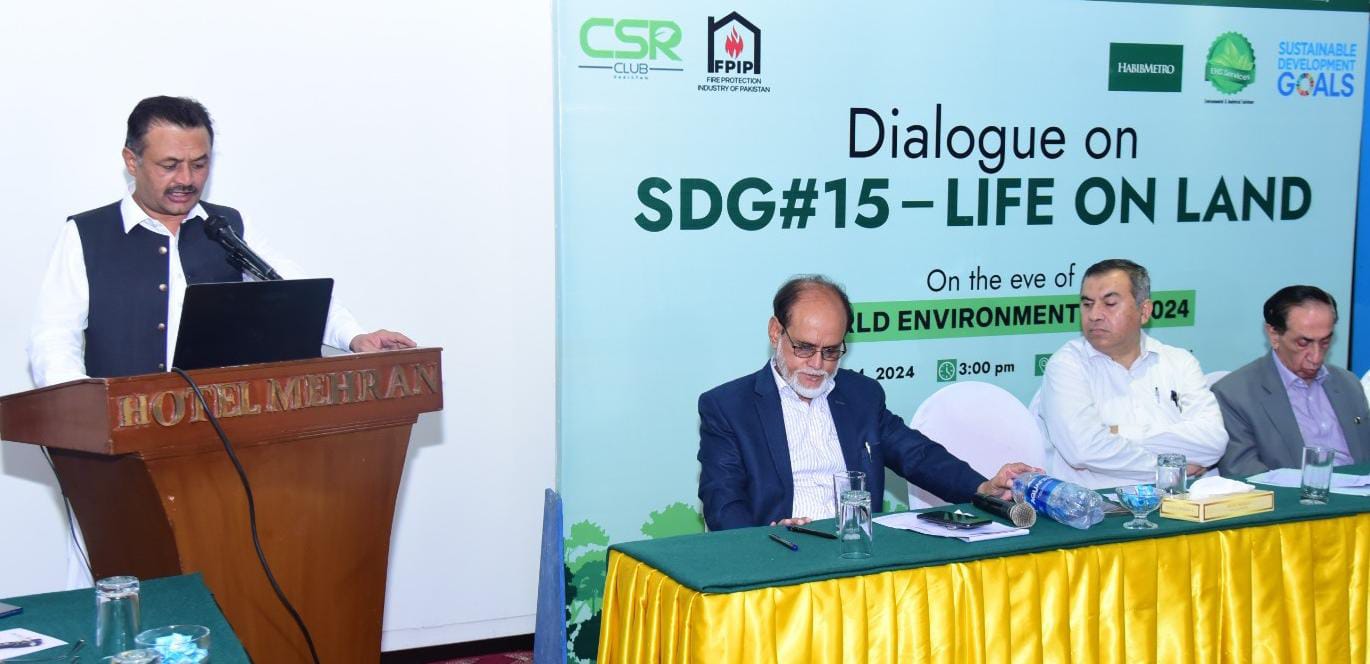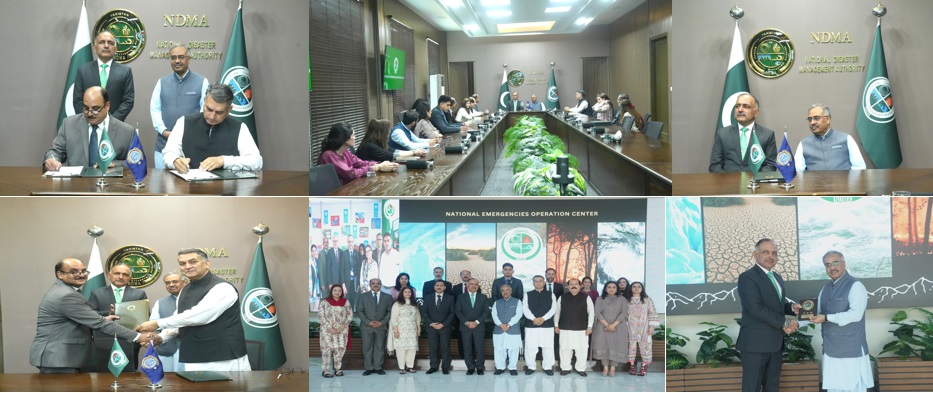Sindh Government Commits to Strengthen Environmental Regulations and Compliance to Reduce Pollution
Karachi: The Sindh government has assured that the provincial environmental watchdog will strengthen its operations to ensure that the conditions in clearance and no-objection certificates issued to industries and institutions are fully followed to reduce pollution instances.
The Sindh Environment Minister, Dost Muhammad Rahimoon, held out this assurance while speaking as a chief guest at an interactive dialogue to mark World Environment Day. The dialogue on “SDG no. 15-Life on land” was organised by the National Forum for Environment and Health (NFEH).
He conceded that the Sindh Environmental Protection Agency should ensure compliance with the environmental laws and regulations by the industrial and transport sectors to ensure that there is minimal pollution in the urban areas.
Rahimoon also assured the audience that the Sindh government would provide the fullest assistance to the project of installing the combined effluent treatment plants at various industrial zones in Karachi.
He said that apart from the industries, other agencies responsible for the unchecked discharge of solid waste into the sea especially municipal bodies should also adhere to the environmental by-laws to minimise their share in environmental and marine pollution in the city.
The Environment Minister said that a massive budget of Rs 29 billion was spent annually only to enable the Sindh Solid Waste Management Board to ensure cleanliness in just two urban centres in the province that are Karachi and Hyderabad.
He said that other municipal agencies should play their due role in ensuring quick and safe disposal of solid waste in their respective jurisdictions.
He assured the audience that the Sindh government stood shoulder-to-shoulder with all the concerned stakeholders including non-governmental organisations and activists who had been working hard to improve the environmental conditions by adopting the necessary mitigation measures including tree plantation drives.
In his keynote speech, Prof Dr Noman Ahmed, Dean Faculty of Architecture and Planning at the NED University of Engineering & Technology, said that maximum degree temperatures in the summer season in urban areas had been exceeding by 0.5 degree Centigrade annually showing a rapid decline in environmental conditions.
He said that the deadly heat wave in June 2015 resulting in the massive number of causalities and torrential rains in 2022 showed that Karachi had been experiencing extreme weather events at a greater frequency due to an increase in its climate vulnerability.
Prof Dr Ahmed said that flawed urban planning in most parts of the city involving the use of small residential plots for tall buildings had been one of the major reasons behind the fast deterioration in environmental conditions.
He lamented that the city’s urban planning didn’t include plans for constructing low-cost housing schemes to deal with the issue of squatter settlements mostly in the suburbs.
He said that expensive gated communities being built on the city’s outskirts had been fast usurping farmlands and wildlife sanctuaries.
Senior environmentalist, Saqib Ejaz Hussain, pointed out that hardly one per cent green cover was left in Karachi as all the concerned quarters should make efforts on a war footing to increase tree plantation on at least 25 per cent area as per the international environmental standards.
He praised the massive mangrove plantation drive of the Sindh government to beef up the marine environment in the coastal areas of the province.
Gulzar Feroze, Convener of FPCCI Standing Committee on Environment, said that at least five combined effluent treatment plants should be built to tackle the issue of industrial waste discharged from seven industrial zones in Karachi.
He urged the Sindh government to effectively ban the polythene shopping bags to save the city’s drainage system from massive trash that often chokes its normal functioning.
Shabina Faraz, a senior environmental journalist, said that prevailing political instability had been the cause behind the lack of performance by the state watchdogs to implement environmental rules and regulations in the country.
Naeem Qureshi, NFEH President, urged the Sindh government to expand its environmental mitigation and urban planning steps to all cities in the province for their sustainable development and growth.
He informed the audience that the NFEH would continue with its tree plantation drive in Karachi and other urban centres with support from relevant government agencies and concerned NGOs.
Ruqiya Naeem, NFEH Secretary-General, said that not just the government but every concerned stakeholder had to perform its responsibility to improve the environmental conditions in the country.




